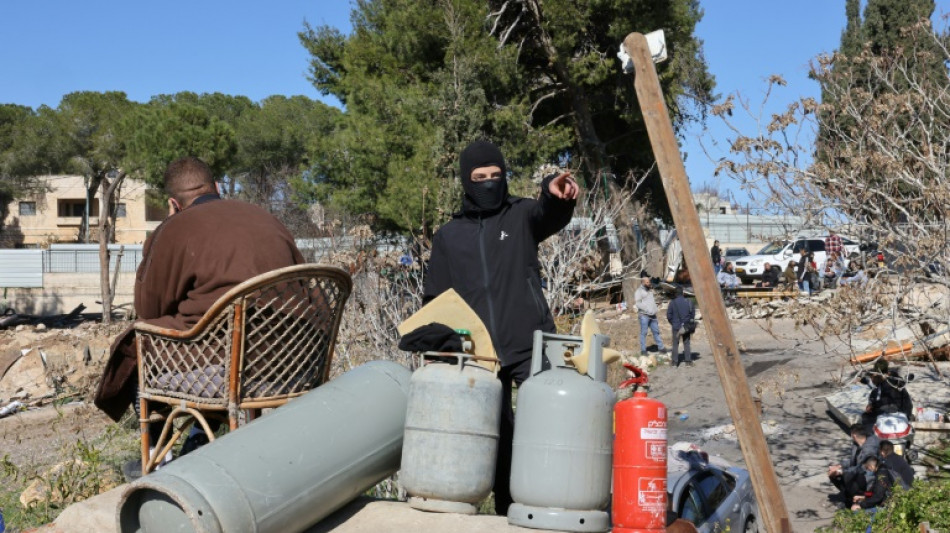

Standoff over Palestinian eviction ends, family says
Israeli police on Tuesday backed down from attempts to evict Palestinians from their home in a Jerusalem flashpoint district, the family said.
Family members had threatened self-immolation in response to the eviction attempts, triggering a standoff.
The Salhiya family has been facing the threat of eviction from their home in the Sheikh Jarrah neighbourhood of Israeli-annexed east Jerusalem since 2017, when the land where their home sits was allocated for school construction.
Anger in Sheikh Jarrah where families battled eviction orders fuelled an 11-day war between Israel and armed Palestinian factions in Gaza last year.
When police arrived to carry out the eviction order on Monday, Salhiya family members went up to the building's roof with gas canisters, threatening to set the contents and themselves alight if they were forced out of their home.
An hours-long standoff ensued, during which a delegation of European diplomats visited the site. Sven Kuehn von Burgsdorff, head of the European Union's mission to the West Bank and Gaza Strip, told AFP on Monday that "in occupied territory, evictions are a violation of international humanitarian law".
By Tuesday, police sent for the eviction had already been removed but children of the Salhiya family remained on the roof with the gas canisters, their father Mahmud told AFP.
According to him, no agreement or understandings had been reached, but lawyers for the family filed a petition to the supreme court on Tuesday to cancel the eviction order.
Dozens of supporters were meanwhile camped out in small bonfire vigils in the vicinity of the home, an AFP reporter said.
In a Tuesday statement to AFP, the municipality of Jerusalem stressed the Salhiya family had numerous opportunities to move out of their home, deemed illegal, and the city had every intention of taking the plot under a district court decision.
Hundreds of Palestinians are facing evictions from their homes in Sheikh Jarrah and other east Jerusalem neighbourhoods. Circumstances surrounding the eviction threats vary.
In some cases Jewish Israelis have mounted legal challenges to claim the plots they say were illegally taken during the war that coincided with Israel's founding in 1948.
- 'A different story' -
Palestinians say their homes were legally purchased from Jordanian authorities who controlled east Jerusalem between 1948 and 1967.
The Salhiya case was a totally different story, according to deputy Jerusalem mayor Fleur Hassan-Nahoum.
In a Tuesday briefing she said the plot they claim as theirs was in fact originally "owned by Arab private owners, and certain neighbourhood chiefs."
The Jerusalem municipality purchased the land from the Arab owners, and allocated it for classrooms for special-needs Palestinian children, she said, accusing the Salhiya family of illegally using the land they never owned.
Hassan-Nahoum said she was "particularly disappointed" by the European diplomats "showing up for something that was a municipal issue, a building and planning issue, and talking about international law breaches."
Late Tuesday, masked Palestinians hurled stones at police forces passing by the area, a police spokesman told AFP, adding that stun grenades were used to disperse them, with no reports of casualties.
Israel captured east Jerusalem in the 1967 Six-Day War and later annexed it, in a move not recognised by the international community.
More than 200,000 Jewish settlers have since moved into the area, fuelling tensions with Palestinians, who claim east Jerusalem as the capital of their future state.
A.Fischer--MP




